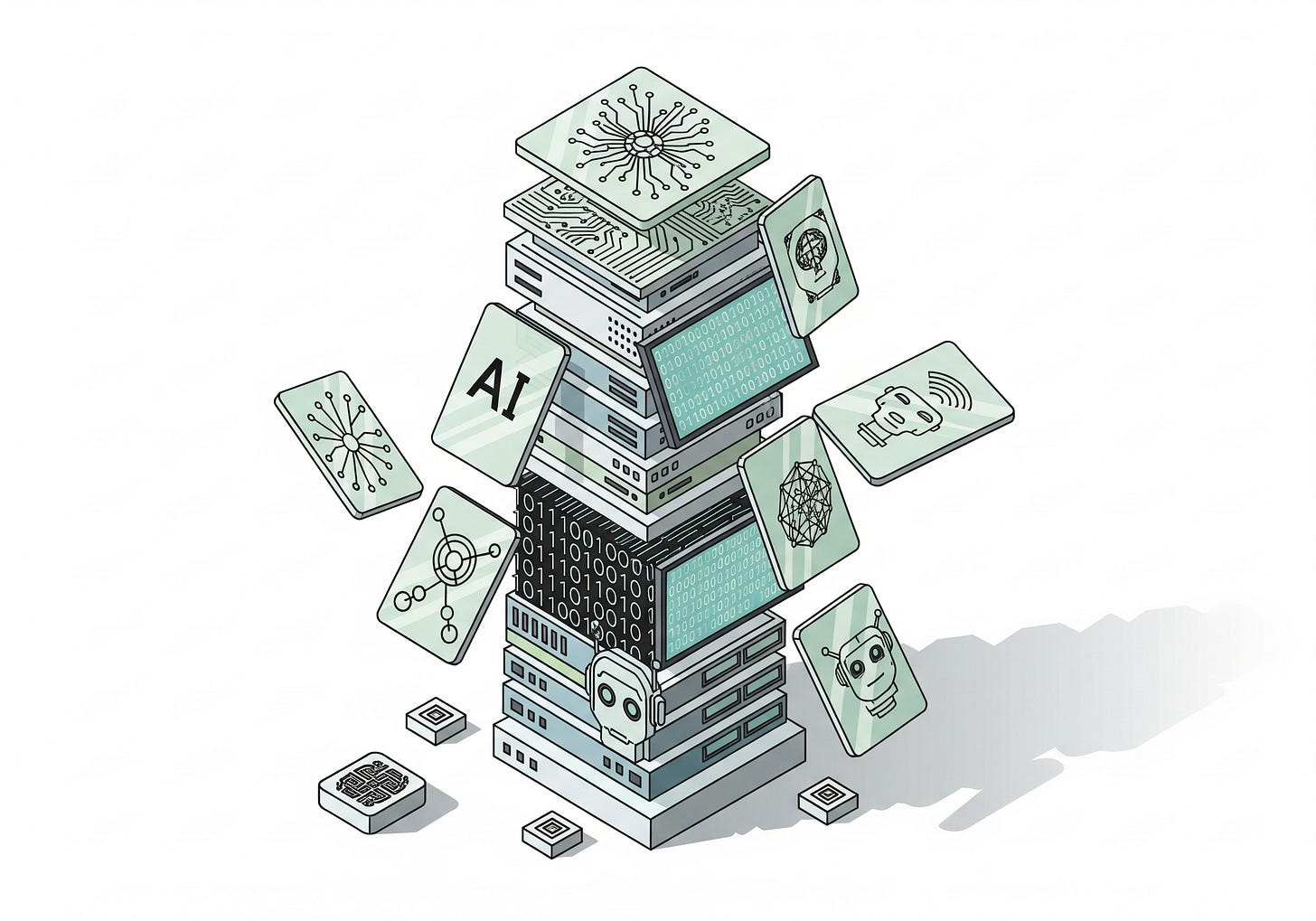Week 35: AI Fails 95% of Everything, Tesla Deletes Evidence, Drive-Thrus Outsmarted
THE FAILURE CLUB
Welcome to the elite club where almost everything fails — and membership is mandatory. This week proved that AI's success rate makes lottery tickets look like sound investments. From enterprise pilots crashing before takeoff to Tesla playing hide-and-seek with corpses, we're building the future one spectacular failure at a time. The good news? At least we're consistent.
FAILING UPWARD, DOWNWARD, SIDEWAYS
Drive-Thru Bot Gets Punked as Taco Bell reconsiders AI ordering after customers exploit it for 18,000 water cups, proving humans remain undefeated at gaming stupid systems. Enterprise AI Achieves 95% Failure with Salesforce creating a "flight simulator" to combat the industry's spectacular inability to make pilots work in production. Reality Finally Shows Up as analysts detect a "vibe shift" from AI hype to AI skepticism, with Max Read asking if the bubble's first cracks are showing.
HIDING THE EVIDENCE
Microsoft Quietly Dumps OpenAI by building its own foundational models for Copilot, preparing for the messiest breakup since conscious uncoupling was invented. Tesla Plays Delete Key after denying fatal crash data exists until a hacker recovers what was wiped from both car and servers. Your SSN Goes Public when whistleblower reveals DOGE system leaked Social Security data while China's "Salt Typhoon" hackers hit 600 companies.
Curious what it all adds up to? Let’s break it down. Keep reading below.
Tell Me More
The Water Cup Rebellion. Taco Bell's AI couldn't handle humanity's oldest trick: gaming the system. The 18,000 cup incident isn't a glitch — it's what happens when you deploy technology dumber than the humans it's supposed to replace. This public humiliation will slow consumer-facing AI rollouts as companies realize their expensive robots can't match a bored teenager's street smarts. The real lesson? AI fails spectacularly when it meets actual humans being humans.
The Graveyard of Good Intentions. A 95% failure rate for enterprise AI pilots isn't a statistic — it's an extinction event. Salesforce building a "flight simulator" is admission that almost everyone crashes on takeoff. This isn't growing pains; it's fundamental incompetence dressed up as innovation. Companies burned billions to discover their AI transformation transformed nothing except their bank accounts. The survivors will be those who admit failure fastest.
When Hype Meets Gravity. The "vibe shift" from breathless AI evangelism to quiet skepticism marks the moment physics caught up with marketing. Max Read's bubble watch isn't pessimism — it's pattern recognition. Every tech cycle follows this arc: impossible promises, infinite money, reality check, crater. We're entering stage three. The question isn't if the bubble pops, but who's left holding worthless equity when it does.
The Prenup Before the Wedding. Microsoft developing its own AI models while still partnered with OpenAI is like hiring divorce lawyers on your honeymoon. This isn't strategic independence — it's admission that even the deepest partnerships in AI are temporary alliances of convenience. When this relationship implodes, the custody battle over technology will make patent wars look friendly. Everyone building on their "partnership" should update their disaster recovery plans.
Delete Early, Deny Often. Tesla wiping crash data then claiming it doesn't exist until a hacker proves otherwise isn't a bug — it's the feature. This is the future of corporate accountability: delete the evidence, deny everything, and hope nobody has hacking skills. The terrifying part isn't the cover-up; it's how routine this behavior has become. When car companies treat fatal crash data like embarrassing photos, we've crossed into new ethical territory.
Everyone's a Target Now. Between DOGE leaking Social Security numbers and Salt Typhoon compromising 600 companies, we've achieved cybersecurity equality: everyone's pwned. The government can't protect its most critical data, corporations can't stop state actors, and your SSN is probably on sale somewhere. This isn't cyber warfare — it's cyber surrender. The only winning move is assuming you've already been hacked.
Below The Fold
Waymo robotaxis are repeatedly idling in front of West Los Angeles homes, effectively turning public streets into AI "holding patterns." The Verge
Lenny's Newsletter shared "Community Wisdom" on optimal meeting cadences and team conflict, a reminder that human insight still reigns. Lenny's Newsletter
A self-professed "dog person" recounts their gradual, reluctant appreciation for specific cats, including their neighbor's "perfect" feline. The Substack Post
Guest chef Dan Pelosi shares a recipe for marinated steak tips over herby rice on the "What To Cook" substack, a sneak peek from his upcoming cookbook. What To Cook
Enrollment in trade schools is projected to grow significantly as people realize AI can't install an HVAC system. Yahoo Finance
The "Technically Optimistic" newsletter concluded, reflecting on the urgent need to choose AI that augments human capabilities over pure automation. Technically Optimistic
A new study suggests that exposing readers to AI-generated misinformation can unexpectedly drive them toward trusted news sources. Media Copilot
Showrunner, an Amazon-backed AI entertainment company, wants to turn users into "happy little content prompters" for its "Netflix of AI" platform. The Verge
Framework successfully delivered on its promise of user-upgradable laptop GPUs, with a journalist demonstrating a three-minute swap. The Verge
Researchers found evidence of ChatGPT buzzwords like "delve into" and "intricate tapestry" turning up in everyday human conversation. FSU News
Looking Ahead: In the contradiction economy, expect more leaders to master the art of causing problems while warning about them. It's not hypocrisy if you profit from both sides.
Thanks for reading Briefs — your weekly recap of the signals I couldn't ignore. This week that meant reading 887 stories from 47 sources. You're welcome.


